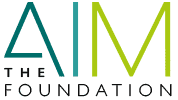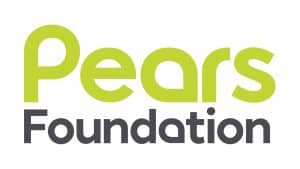Knowing where to look for help can be a tough thing to navigate with the amount of resources out there. Here’s some information where you can start to look for getting support with your mental health.
Beyond: Now and Beyond Directory
The Now and Beyond Directory exists to improve access and knowledge of existing services across both the public and private sector. Spanning a wide range of disciplines and searchable on a geo-located basis, educators can easily identify the providers local to their settings. Areas of coverage including eating disorder support, counselling and psychotherapy, creative therapy, self harm support and more.
Chasing the stigma: Hub of Hope
The Hub of Hope is the UK’s leading mental health support database. It is provided by national mental health charity, Chasing the Stigma, and brings local, national, peer, community, charity, private and NHS mental health support and services together in one place for the first time.
Childline: Feels like you have too much to deal with?
Information, advice and a free confidential helpline for children under 19 years of age.
Mind: Information for young people aged 11-18 | How to get help and support – for 11-18 year olds
Information and resources to guide you through getting support for your mental health.
Not Fine in School: School attendance
Resources for the growing numbers of families with children experiencing school attendance barriers.
Information to help support children and young people’s mental health and activities to boost wellbeing.
Become: ‘Taking Care of Me’ | Mental health and wellbeing
Wellbeing guide co-produced with care-experienced young people and a list of organisations that provide support and resources for young people with mental health and wellbeing.
Bounce Forward: Me at My Best
People who notice the good things around them often live longer, have healthier relationships & greater life satisfaction. Bounce Forward also offer free resources on managing change and learning packs, activities & classroom displays for schools & parents.
Family Links the Centre for Emotional Health: Family Links Education Zone
Free resources to support School Leaders and educationalists to improve the wellbeing of their school community by putting relationships at the heart of school life.
Partnership for Children: Free wellbeing activities
These wellbeing activities for schools, children and families are based on the Skills for Life programmes. The children’s activities are designed to help children process feelings, communicate effectively, cope with their anxieties and difficulties and deal with change and loss.
The Children’s Society: Wellbeing activities
Tips and tools/activities for young people to help them improve their wellbeing. This includes tips on adapting to change, activities to create a healthy routine, tips for building self-esteem and advice on asking for help.
UCAS: Mental health and wellbeing
A wealth of resources to help through every stage.
Here’s a selection of member resources with advice and help on mental health problems and specific conditions.
Beat: Beat’s e-Learning platforms for carers and school professionals
Resources from Beat for carers and school professionals designed to provide anyone supporting someone with an eating disorder with a space to learn and understand eating disorders.
Common Room: Self-Harm for children and young people inpatient settings
A series of poster and a team briefing sheet about children and young people and self-harm, this resource has been created to help improve responses to suicidal feelings and self-harm incidents in inpatient settings.
Mental Health Foundation: What can we do to cope with feelings of anxiety?
Dealing with anxiety can be hard. But there are some things we can do to manage these tough feelings.
Mind: Coping with self-harm – for 11-18 year olds
Information for 11-18 year olds on self-harm, with advice on how to help yourself and where to go for support.
Mind: Dealing with anger – for 11-18 year olds
Information for 11-18 year olds on anger, with advice on how to manage it and where to go for support.
The Horizon Plan: Learn how you can support your self-harming child’s healing
Free-to-access online course guiding parents to support the recovery of a young person struggling with mental health.
Transformation Partners in Health and Care: Eating Disorders guidance for professionals
Practical resources on spotting the early signs of an eating disorder in young people and new guidance on disordered eating.
Youth Mental Health Foundation: Learn how YOU can support your self-harming child’s healing
Free course for the parents and carers of young people who self-harm.
If you’re worried about bullying or want to find out where you can get advice and support this is the section for you.
Anti-Bullying Alliance: Where to get advice and support
Advice and support for bullying for parents/carers, young people, or those who work with young people.
Barnardo’s: Bullying
The information here will help you to understand bullying as well as your rights and how you can get help. It’s important that you can understand the effects of bullying and figure out ways of getting help and stopping the problem.
Mentally Health Schools: A whole school approach to anti-bullying practice
This report provides detailed evidence, case studies and guidance on anti-bullying and how schools can adopt a whole-school approach to anti-bullying policy.
NSPCC: Anti-bullying week 2022 resources
A selection of NSPCC resources from Anti-bullying week 2022 to help professionals recognise, respond to and prevent bullying and cyberbullying within their organisations.
YoungMinds: A guide for young people on bullying, how to cope and where to get help
If you’re being bullied, whether it’s online or at school, university or work, it can be really difficult and leave you feeling hurt – but you are not alone. We have advice on how you can tell someone and get help.
Many children and young people are affected by the cost of living crisis. Here are ways parents, carers and school staff can support children’s mental health
Child Poverty Action Group: Supporting families in times of hardship, a guide for schools
CPAG have produced a guide for schools to consider how they can support families through times of economic difficulty.
Contact: cost of living advice
Cost of living advice for families with disabled children, find out whether you’re eligible for financial support for your household living costs.
Newsround: Advice if you are worried about rising costs
Newsround have spoken to some organisations and people about the cost of living and have provided some really simple things you can do to help.
No5: Support and Resources for the Cost of Living Crisis
Compilation of resources and services for Young People, University students, and parents.
Student Minds: Support for me, cost of living
Learn about how the cost of living crisis is affecting students, use your voice, and get support.
YoungMinds: Money and mental health
Information on the links between money and mental health, how to support your child’s wellbeing and look after yourself in the cost-of-living crisis, and where to find practical and financial support for your family.
The death of an important person can raise questions from young people that you might find difficult to answer. Here is some advice to help you cope with the news of a loved one or someone famous:
NSPCC: How to have difficult conversations with children
NSPCC have provided some useful advice to help navigate how to have difficult conversations when a child or young person raises a sensitive issue.
Place2Be: Supporting your child when someone well known dies
When somebody famous dies, it can be difficult to know how to support children and young people through that loss. Place2Be have shared some advice.
Studentminds: Grief and loss
Learn more about loss, and how you can support yourself through it with a number of articles and videos created by Student Space, part of Student Minds the UK’s student mental health charity.
Suicide Bereavement UK: Walk With Us
The toolkit has been co-produced with children and young people who have been bereaved by suicide for supporting children, young people and their families. Information in this toolkit is useful for everyone, with some pages particularly aimed at professionals or children, young people and families (CYPF).
Winston’s Wish: Thunk’s activity
Winston’s Wish has developed their free Thunks activity to support conversations with children and young people on grief, death and bereavement using simple looking questions designed to open up thinking and discussion around the topics of death, grief and bereavement.
Winston’s Wish: Giving hope to grieving children
Winston’s Wish provides bereavement support to children, young people (up to 25) and their families after the death of a parent, sibling or important person, along with online resources and training for professionals.
YoungMinds: A guide for young people: grief and loss
When you lose someone close to you, it’s natural to feel sad, depressed, worried or angry. Everyone reacts in their own way. If you’re finding it hard to cope with bereavement, YouingMinds can help you find support.
Babies need a nurturing relationship to lay the foundation for lifelong mental and physical health but are often overlooked. Here are some resources and guidance on supporting the mental health of babies, young children and their families.
Anna Freud: Early years in mind
Free online network providing easy to read and easy to use guidance on supporting the mental health of babies, young children and their families.
Parent-Infant Foundation: Useful resources
Information for parents, carers and professionals to further understanding about parent-infant relationships.
Thrive Approach: Early years
A selection of resources to support the emotional health and wellbeing of babies and young children.
UK Committee for UNICEF (UNICEF UK): Understanding and supporting mental health in infancy and early childhood: A toolkit to support local action in the UK
This practical resource will support service leaders, commissioners and policy teams to develop a whole-system approach to support the emotional wellbeing of babies and young children now, as well as laying strong foundations for good mental health throughout their lives.
A wide range of resources for young people, professionals, organisations & groups working with LGBT+ Youth.
Barnardo’s: Everyone should be free to be themselves
This resource provides direct support to LGBTQ children and young people around their gender and sexual identities. It is also helpful to parents, carers and families.
Mermaids: Resources for young people
Mermaids have signposted resources from external organisations with information on where to find support, legal rights, child and adolescent services, and information 0n gender identity.
Stonewall:
An introduction to supporting LGBTQ+ children and young people
Best practice toolkits and resources
Stonewall have spent more than 30 years working towards a world where all children and young people have access to an LGBTQ+ inclusive education. These guides are a great place to start with supporting LGBTQ+ children and young people to thrive in education.
The Prince’s Trust: LGBTQIA+ Resources
A selection of signposted organisations all who can offer help and support for young LGBTQIA+ communities.
The Proud Trust: For young people
Helpful information covering a range of different topics such as coming out, faith and religion, and staying safe.
Family Links the Centre for Emotional Health: The Parenting Puzzle video clips
This YouTube playlist is a series packed with tips and ideas to improve family relationships. Two cartoon families demonstrate family life before and after implementing the Family Links Nurturing Programme.
Our Time: Parental mental illness
Information, guides and support for children and young people who have a parent with a mental illness.
Tavistock Relationships: Relationships, mental health, wellbeing
Understanding relationships: Aims to provide primary school teachers with material they can draw on when talking to children about relationships.
Relationships and health: aims to provide secondary school teachers with material they can draw on when talking to children about relationships.
Being treated differently or unfairly because of our race, skin colour or ethnicity can negatively affect our mental health. Here’s some information on how to get help if you’ve experienced racism.
Anna Freud: Anti-racism and mental health in schools resources
This set of 10 resources is designed around Anna Freud’s 5 Steps framework, which supports educators to create a whole-school approach to mental health and wellbeing.
BAYO: Join the BAYO platform
Bayo is a space to find collectives, organisations and services from across the UK to support mental health and wellbeing to diverse young people from the Black community. BAYO provides access to free bespoke learning packages, peer to peer support, networking and access to a small grant program.
BBC Bitesize: Racism: How to protect your mental health
This article offers advice on how to look after your mental health if you have been affected by racism.
Mind: Racism and mental health
This information pack from Mind can help you understand the impact of racism – and choose how and where to seek help. If you’re finding it hard to get the support you need, these tips can help you find a way forward.
NSPCC: Talking to children about racism
Advice to help you understand how to talk to children about race and racism, and what you can do to support a child who’s experiencing racial bullying.
YoungMinds: Coping with life: racism and mental health
Information on how to get help if you’ve experienced racism.
Exam time can be tough for students, teachers and families. Here’s a selection of resources and guidelines for all which include tips, tools and advice to support wellbeing, dealing with exam stress, and receiving exam results.
Anna Freud Centre and Early Intervention Foundation (EIF): Classroom wellbeing toolkit
A toolkit to help secondary school staff support students with their mental health. The resource, aimed at schoolteachers and other staff, covers five strategy areas on: building supportive relationships; responding to stress; and preventing bullying, cyberbullying and sexual harassment.
Bounce Forward: Understanding Emotions
A resource for teachers to use with their students to help boost positive emotions. Tools that can be used as part of everyday activity.
Charlie Waller: Healthy approach to exams
Practical strategies for young people, parents/carers, and teachers, in looking after students’ mental wellbeing during exam season.
Family Links the Centre for Emotional Health: Mental and Emotional Health in Schools: Effective Strategies and Support
Free CPD certified online course to help school staff recognise and respond to signs of poor mental health and support their own and other’s emotional health, increasing mental wellbeing in schools.
Flourish: How to start your school year strong
The start of a new school year is a perfect time to boost your grades and overall school experience. Jo Brown shares tips on how pupils can truly smash the new academic year.
Mentally Health Schools: Academic and exam stress
Helpful advice for parents and school staff to help understanding exam stress and identify the signs.
Mind: Exam stress – for 11-18 year olds
Information for 11-18 year olds on exam stress, with advice on how to cope and where to go for support.
Ofqual publications: for exam guidance
Ofqual have updated a number of resources people may find helpful to have access to during and leading up to exam time: Ofqual Student Guide 2023 and Coping with exam pressure – a guide for students.
Place2Be: Navigating exam season – free resources
Place2Be have created some sheets full of helpful tips and practical advice to help young people, schools and families manage stress during exam season.
Student Minds: Exam stress
A range of things that you can do to help deal with the stress that you might be feeling.
YoungMinds: Dealing with exam stress
Pressure to do well in exams can be overwhelming and can affect your child’s mental health. Here’s some advice from YoungMinds if it’s all getting a bit too much.
Youth Sport Trust: Active in Mind
A suite of free resources and videos to support young people who are struggling to engage with learning and school life and supports their physical and mental health.
Autistica: Supporting autistic children and young people through crisis
An evidence-based resource commissioned by NHS England, explaining the barriers autistic people face in accessing crisis support and suggesting adaptations to make services more inclusive.
Foundation for People with Learning Disabilities: Feeling down – looking after my mental health
An easy-read online resource to help people with a learning disability to take care of their mental health.
Mentally Healthy Schools: Children with additional needs
Statutory guidance, code of practice, responsibilities and information on children with special educational needs and disability and their mental health.
Mind: Guide to learning disability and mental health support
Information about where and how to get support for yourself, or someone else with a learning disability.
Royal College of Speech and Language Therapists: Mind Your Words
A free e-learning course which explores the link between mental health problems and speech, language and communication needs – and how to support children and young people who have both.
Special Needs Jungle: News & information
Parent-led information, resources and informed opinion about children and young people 0 to 25.
YoungMinds: Supporting refugee and asylum seeking children
These resources are for foster carers, social workers, school staff and any other professionals who are supporting asylum seeking and refugee children across England.
UK Trauma Council: How to support refugee and asylum-seeking children and young people who have experienced trauma
Information and resources to support children and young people seeking asylum or living as refugees in the UK who have experienced trauma, with help to improve outcomes for refugees and asylum-seeking children and young people.
Whether you are looking for support for your own mental health at university, support for a friend or loved one, or for services that might be available to you as a student, help is available.
Papyrus: University Mental Health Day
Top tips from Papyrus on looking after your mental health as a university student.
Student Minds: Challenges that university life can bring
These resources from Student Minds contain detailed information on the different challenges that university life can bring.
Student Space: Support through the uncertainty of student life
Expert information and advice to help students navigate the challenges of student life, including preparing for university, mental health and wellbeing, money, and grief/loss.
UCAS: Supporting students with mental health conditions
A variety of support to manage student mental health and wellbeing in higher education – ranging from help with a specific condition through to ways they can look after their general wellbeing.
UMHAN: Resources for students
If you’re a student with a mental health condition, you know someone who is, or you want to raise awareness, you may find these pages useful. With information about who to talk to about issues relating to your mental health and study, entitlements as a student with a mental health condition, and self help resources.




